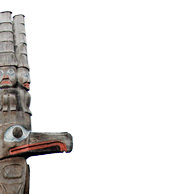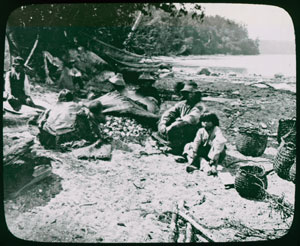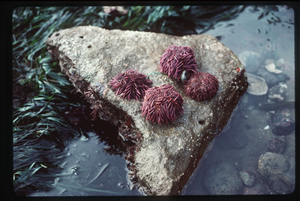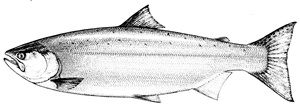 |
|||||||||
 |
|||||||||
 |
|||||||||

Songhees |
||
|---|---|---|
The land that is now Thunderbird Park formed the edge of James Bay. Here shellfish, sea birds and marine animals were harvested using a variety of well-adapted technologies. |
||
 |
Seals were hunted in the adjacent Victoria harbour and Gorge waterway as they foraged for migrating and local fish. |
|
 |
Clams were collected in James Bay and taken back to a main village to cook, in much the same way as shown in this late 19th century photograph of people steaming clams in Cordova Bay. Large baskets of clams were emptied on a fire filled with hot rocks and covered with rush mats. Water was poured on the fire to create steam, which caused the clams to open. RBCM PN8548 |
|
 |
Sea urchins were a common food of the Lukwungen people. They were gathered on rocky shorelines adjacent to kelp or eel grass beds. |
|
 |
Cod were caught in James Bay and adjacent waters. Fish lures such as this one were pushed underwater and then released. As the lures spun, the fish followed them to the surface where the fish were then speared. RBCM: 727 |
|
 |
Coho Salmon migrated into James Bay and up the Gorge waterway in the spring. |
|
 |
Cutthroat Trout could be harvested in the Gorge waterway all year. |
|
 |
This is a model of a composite fish hook of the type used for trolling for salmon. RBCM: 728 |
|
 |
Fish were netted in Victoria harbour, which forms part of the larger Gorge waterway. This is a model of the type of gill net that would have been used to catch salmon in narrow places along the Gorge. RBCM: 2433 |
|
| Back to Songhees |
